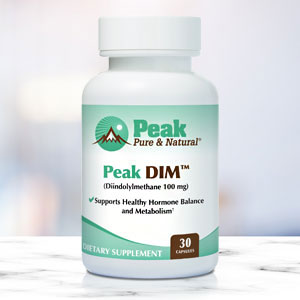Get Easy Health Digest™ in your inbox and don’t miss a thing when you subscribe today. Plus, get the free bonus report, Mother Nature’s Tips, Tricks and Remedies for Cholesterol, Blood Pressure & Blood Sugar as my way of saying welcome to the community!
Hormone imbalance has a profound effect on your weight

Unbalanced or poorly functioning hormones are an often overlooked cause of unwanted weight gain.
The hormones involved include cortisol, thyroid, DHEA, aldosterone, growth hormone, progesterone, testosterone, and estrogen.
In this article, I will discuss which hormones you should have checked and managed by a physician experienced in natural hormone balancing if you have found it difficult to manage your weight.
Excess hormones promote weight gain
The hormones cortisol, estrogen, insulin, and aldosterone have many important functions. However, if these are elevated you may be experiencing their weight-promoting effects. Here are signs and symptoms to consider so you know whether or not to have them checked and balanced.
Cortisol: This hormone is secreted naturally and appropriately in times of mental, emotional or physical stress to protect you. However, if you allow yourself to be under prolonged or chronic stress (by continuing to allow stressful causes to be the focus of your attention, rather than focusing on what is wanted and feeling good), cortisol will take its toll on you in many ways, including increased abdominal fat and puffy face (“moon face”). It can progress to even depositing abnormal fat on your shoulders and upper back and neck (“buffalo hump”). Excess cortisol also interferes with normal thyroid function and impairs production of growth hormone and testosterone, all of which mean excess body weight.
Insulin: You know this hormone is high in people with type 2 diabetes. Yet it is elevated in many times more people than in diabetics, a condition known as metabolic syndrome (“pre-diabetes”), a condition now estimated to affect one in four American adults. Insulin causes energy storage in the form of fat, usually on the abdomen, hips and thighs. When it surges in the non-diabetic person, it drops blood sugar and triggers the craving for caloric intake, often in the form of simple carbohydrates such as pasta, bread, cereals or sweet foods. Without nutrient-rich high-fiber food to go along with simple carbohydrates, the body secretes even more insulin, completing a vicious cycle. Getting enough cortisol, thyroid hormone, testosterone, and growth hormone also help to normalize insulin levels.
Estrogen: Testosterone can easily be converted into to estrogen in the adrenal glands. In both men and women this causes abnormal weight gain: breast and abdominal fat in men (testosterone deficiency); droopy breasts and overall body fat in women. Other causes of estrogen excess include lack of exercise, a diet low in fiber but high in unhealthy fats and simple carbohydrates, and taking or being exposed to too much estrogen (including xenoestrogens).
Aldosterone: This hormone is produced by the adrenal glands. Elevated levels of aldosterone cause water retention, which can make you heavy but not necessarily fat. Be aware that water retention can also be from a failing heart or kidneys.
Insufficient hormones lead to weight gain
There are other important hormones that can easily lead to abnormal weight gain when low or under-functioning. These are thyroid hormone, DHEA, testosterone, progesterone, growth hormone, aldosterone and cortisol. I’ll describe these and what to look for.
Thyroid hormone: This hormone can be under-functioning even if blood levels indicate thyroid levels in the normal range. That’s because thyroid hormone drives metabolism in practically all your body tissues, so you are dependent not only on levels circulating, but also whether it is actually effectively working at those receptor sites. I have found that a low basal body temperature along with signs and symptom of fatigue, swollen face in the morning, leg edema (see also high aldosterone), cold hands and feet, dry skin, enlarged thighs and calves, or excessive weight, etc., respond well to natural thyroid replacement without causing hyperthyroidism.
Testosterone: Especially in men, enlarged feminized breasts, abdominal obesity and waning libido usually turn out to be testosterone deficiency. For women, low testosterone can also contribute to low interest in sex, poorly toned muscle and sagging breasts.
DHEA (dehydroepiandrosterone): This precursor to testosterone can be low, thereby contributing to signs of low testosterone, especially abnormal belly fat.
Progesterone: When progesterone levels are low (relative to estrogen) this may cause a woman’s breasts to begin growing again after they stopped growing after adolescence, and be painful prior to menstruation. Other premenstrual syndrome symptoms (belly bloating, heavy or painful periods, irritability, etc.) and increased breast and body weight indicate a need to balance progesterone.
Growth hormone: An increase in belly fat or generalized body fat could be caused by a low level of growth hormone, as with low testosterone and/or low DHEA levels.
Editor’s note: Are you feeling unusually tired? You may think this is normal aging, but the problem could be your master hormone. When it’s not working, your risk of age-related diseases skyrockets. To reset what many call “the trigger for all disease” and live better, longer, click here to discover The Insulin Factor: How to Repair Your Body’s Master Controller and Conquer Chronic Disease!














